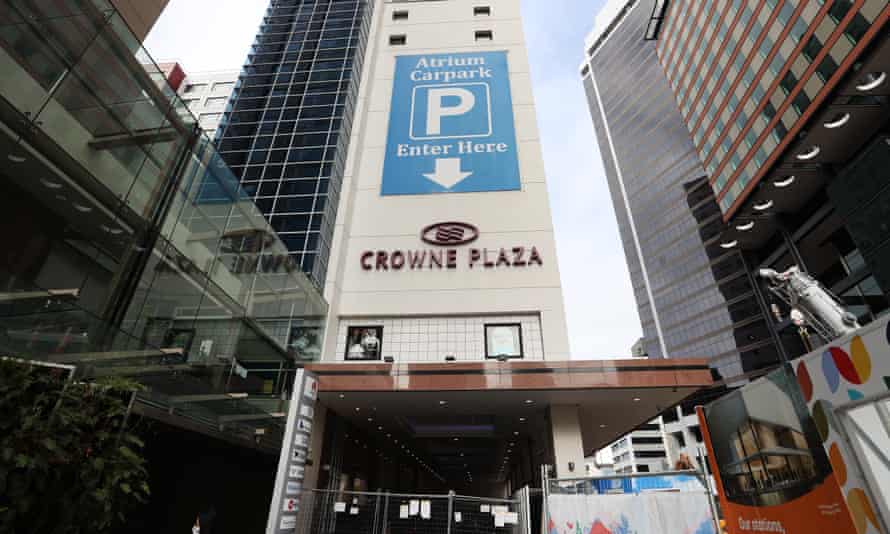
New Zealand is bracing for its biggest coronavirus outbreak yet as cases rise, the locations of interest balloon to more than 400 sites, and the number of close contacts swells to more than 15,700 people.
On Tuesday, the country recorded 41 new positive cases, bringing the total number in its outbreak to 148 – the majority of whom are Samoan, and linked to a sub-cluster who assembled at the Assembly of God church in Mangere, Auckland before the lockdown.
A nationwide, level 4 lockdown – the highest setting – has been extended until at least the end of the week, as the country battles to contain the outbreak of the Delta variant.
Auckland – the country’s largest city, where the majority of cases have been detected – will remain in lockdown until the end of the month.
Of the 41 new cases, 38 are in Auckland, and 3 are in Wellington. Of the total 148 cases, 89 are epidemiologically linked to the Auckland cluster, with the remaining still under investigation, but likely to be linked because they are either household contacts or have been at a location of interest.
Eight people are in hospital with the virus, but no one is in intensive care.
Genome sequencing has linked the cluster to a returnee from Australia. It is not yet known how the virus was transmitted from the traveller, who was in quarantine, to the community, but a walkway and an atrium in the facility is being investigated.
On Tuesday afternoon, the director general of health, Dr Ashley Bloomfield, said dealing with the Delta variant was like dealing with a whole new virus.
“It is, as we know, highly infectious and transmissible, and as we have seen spreads rapidly.”
Bloomfield said this reinforced “just how critical it is” that people follow the level 4 lockdown rules.

Earlier, the prime minister, Jacinda Ardern, told RNZ the rise in cases was “not unexpected”.
Health workers continue to find people who are likely to have been in contact with a Covid-19 case and could have been infectious before the lockdown started, Ardern said.
“So their view is that we will start to see fewer locations of interest, but where we are right now, only seven days in, we are not at the point where we are picking up infections that are only in lockdown the entire time.”
In August 2020’s outbreak there were 1,500 close contacts identified – ten times fewer than this outbreak so far.
Prof Shaun Hendy, a modeller at Te Pūnaha Matatini, told the NZ Herald a “best-case scenario” could see about 200 cases – greater than the outbreak in August last year – while it was possible the cluster could swell to 1,000.
A mathematics modeller at the University of Canterbury, Alex James, said the cluster was well on track to be the biggest the country has experienced.
“Last August took 18 days before we were confident that it was under control. This time, we are already on double the daily case numbers. It’s going to be longer this time.”
James said the country could see the number of cases peak in the next few days, but expects it will take four to six weeks before the virus is stamped out.
Meanwhile, the vaccine rollout has ramped up, with 63,333 doses administered on Monday – the most on any single day.
Sittings of New Zealand’s house of parliament were suspended for a week on Monday to prevent Delta’s spread.
Ardern, who made the decision to suspend the house, said MPs coming from around the country risked spreading the virus further.
The move has riled opposition parties, who say the suspension could allow the government to avoid scrutiny and criticism of its lockdown policies and pandemic management.
“There are important questions that need to be asked as to how Delta got into New Zealand. Suspending parliament means the government avoids this scrutiny,” opposition leader Judith Collins said in a release on Monday. ACT party leader David Seymour said the government should launch an opposition-led epidemic response committee, which would be a source of “accountability”.
The leader of the house, Chris Hipkins, said the decision had been advised by the director-general of health. “It is not advisable for MPs to participate in a large indoor gathering for an extended period of time, or travel inter-regionally to do so, while the Covid-19 risk for New Zealand remains high.”
He said opposition and other MPs could still ask questions during online select committees.
“In making this decision, cabinet was very mindful of the need for ongoing democratic scrutiny. Opposition and backbench MPs should still have the opportunity to question the government in the absence of House sittings.”


